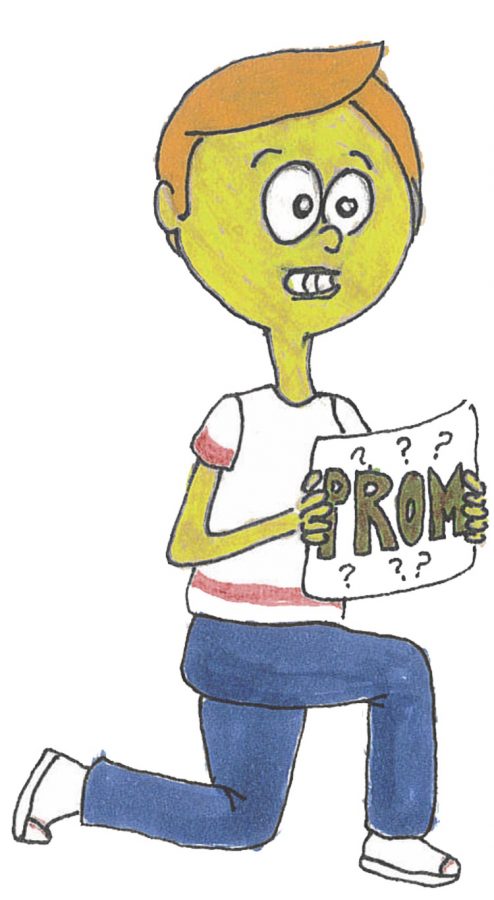The tradition of proposals may have negative effects on the community
Credit: Olivia Weinberg
June 5, 2018
Promposals, a relatively new phenomenon, have risen in popularity over the last decade. A play on marriage proposals, promposals revolve around asking a companion to the Prom in a public and/or elaborate manner. They can involve elaborate signs, decorations, and even a host of people. Among students, this ritual is widely discussed in the months leading up to prom and generally viewed positively.
This year, the public nature of promposals are at an all time high; ranging from makeshift fashion shows to coffeehouse songs. Adding to the excitement, a social media account was created by a senior to publicize the promposals on campus, featuring students and their elaborate “asks.” Over three hundred students follow the Instagram account named “Hackleypromposals2018,” which posts daily images and videos that receive hundreds of likes.
Junior Lilly Yerkes commented on her experience with promposals, “it’s a lot fun to make a big thing out of it and get everyone involved.” According to a recent poll conducted with the Hackley Upper School, 91.1% of students believe that promposals generate excitement for Prom. This may be due to the fact that promposals allow students to collaborate with others to come up with creative ideas.
However, this opinion is not unanimous, as many question the negative effects promposals may have on the community since they become excessive. This seems to be a polarizing issue within the student body, with 42.8% of students agreeing that promposals create a marginalization of those not asked.
Math teacher Jon Gruenberg said, “Lavish promposals seem to spawn the pressure to create even more lavish promposals which often leave a distasteful impression on many people in the community… That said, I don’t think students should be deprived of being asked to prom or asking someone if they so choose.”
Worries over marginalization are present throughout the study body as well, but often these students voices fail to be heard under the roar of excitement surrounding prom. However, not everyone on campus has such controversial views.
Thomas Dewey commented, “I don’t have a problem with flashiness if they have knowledge of the promposal beforehand, but it can put pressure on the person if it’s in front of the a large group and it wasn’t agreed on before.” Issues have arisen in the past when students have declined a public promposal and spurred conversation about the pressure these types of proposals can impose. Almost 79% of those polled agree that pressure is placed on those being asked.
Mikhaila Archer said, “Many individuals feel as if they have no choice but to accept the invitation, as to not embarrass their classmate, due to the fact that promposals are typically done in a very public manner and therefore, these types of promposals are only appropriate if the arrangement has been agreed on before hand either directly or indirectly through friends.” However, many feel that the element of surprise is essential to promposals, so the solution of solidifying an arrangement beforehand is not necessarily ideal.
Among administrators, unanimity does not exist either, creating an important conversation about the possible marginalization of the minority despite the fact that promposals are becoming a tradition. Although one may assume promposals are an exciting rite of passage that have been enjoyed for the past few years by high schoolers around the country, the pressure and anxiety that comes with extravagant promposals should be considered and discussed in order to ensure the experience of prom is a positive one. Students and teachers both hope to keep the tradition alive while considering the multifaceted nature of its effects on the student body in the future.

